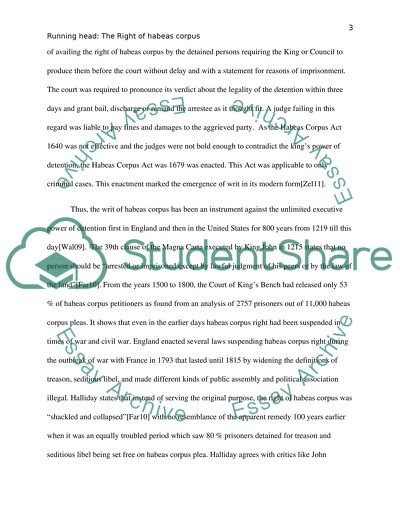Cite this document
(“The right of habeas corpus in the context of the war on terror Essay”, n.d.)
Retrieved de https://studentshare.org/miscellaneous/1630555-the-right-of-habeas-corpus-in-the-context-of-the-war-on-terror
Retrieved de https://studentshare.org/miscellaneous/1630555-the-right-of-habeas-corpus-in-the-context-of-the-war-on-terror
(The Right of Habeas Corpus in the Context of the War on Terror Essay)
https://studentshare.org/miscellaneous/1630555-the-right-of-habeas-corpus-in-the-context-of-the-war-on-terror.
https://studentshare.org/miscellaneous/1630555-the-right-of-habeas-corpus-in-the-context-of-the-war-on-terror.
“The Right of Habeas Corpus in the Context of the War on Terror Essay”, n.d. https://studentshare.org/miscellaneous/1630555-the-right-of-habeas-corpus-in-the-context-of-the-war-on-terror.


